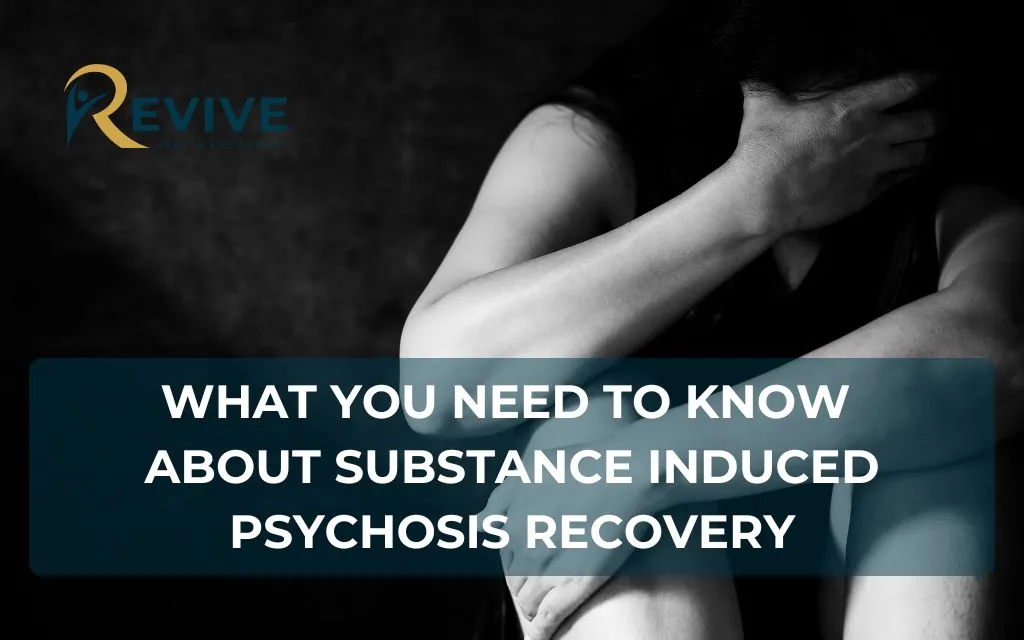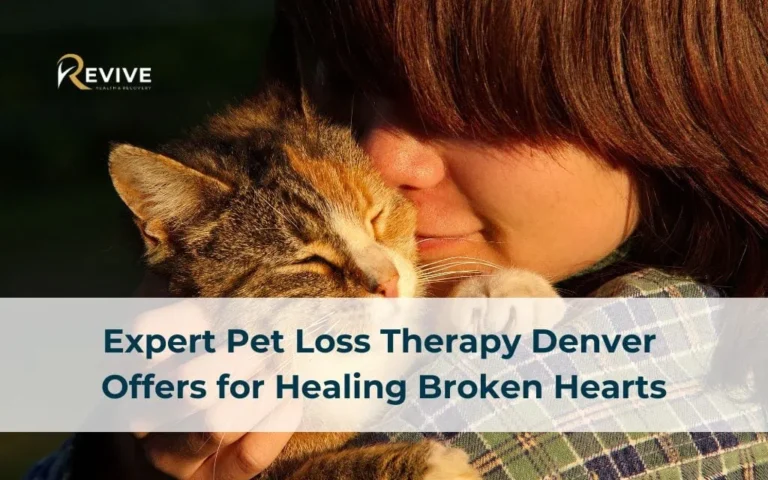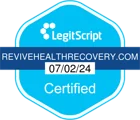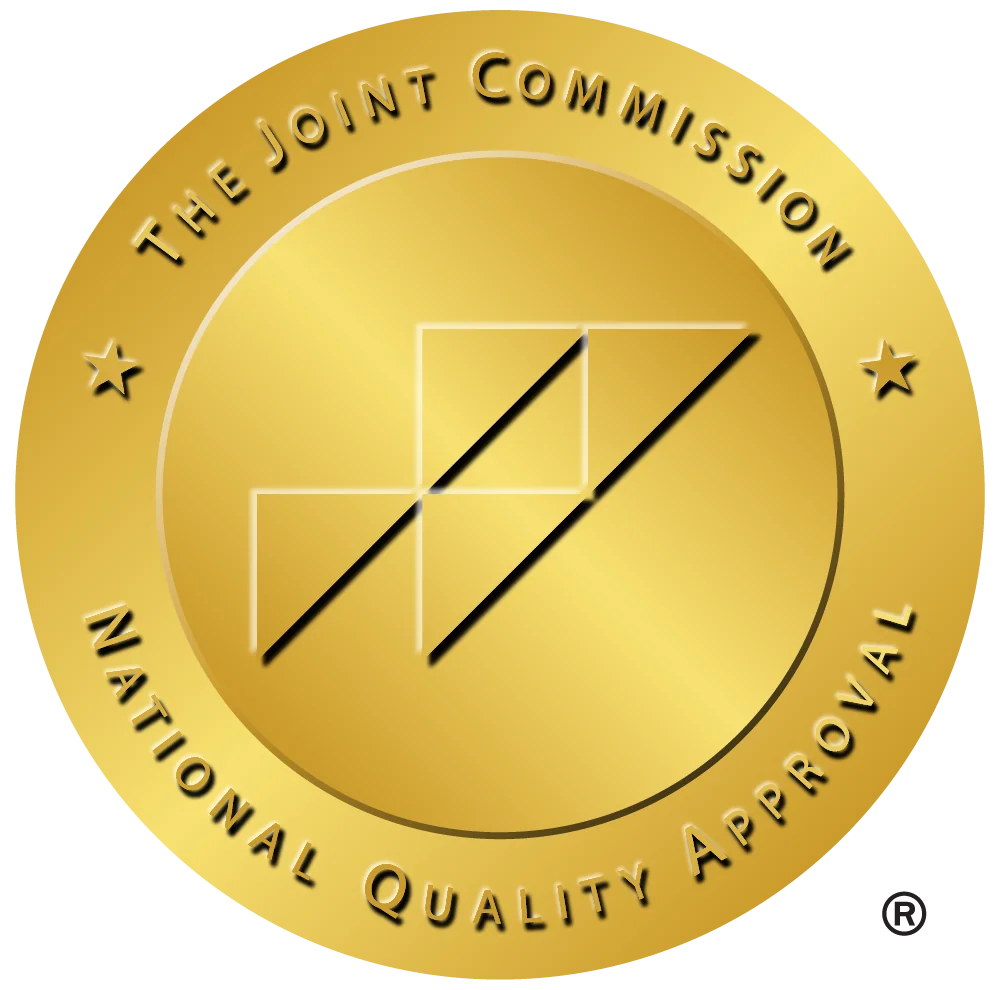Substance induced psychosis is a severe mental health condition that arises from excessive drug or alcohol use, resulting in episodes of hallucinations, delusions, and other psychotic symptoms.
Recognizing and understanding the complexities of this disorder is critical for those affected and their families, as it disrupts personal and social life, leading to challenges in recovery. At Revive Health Recovery in Denver, Colorado, specialized treatment options provide support for individuals battling substance induced psychosis, offering a path to lasting recovery.
While substance induced psychosis may initially present as temporary, prolonged substance abuse can lead to persistent symptoms, with risks of relapse and co-occurring disorders. This guide explores the causes, symptoms, and various treatment approaches, emphasizing dual diagnosis and long-term care to ensure comprehensive support. Understanding the nature of substance induced psychosis is the first step toward reclaiming mental health and achieving a stable life.
What is Substance Induced Psychosis?
Defining Substance Induced Psychosis
Substance induced psychosis is a type of psychotic disorder caused directly by substance use, including drugs or alcohol. Unlike primary psychosis disorders such as schizophrenia, substance induced psychosis is typically tied to specific substances and can vary in duration and intensity. When substances interfere with the brain’s neurotransmitters, they can trigger episodes of severe mental confusion and altered perceptions of reality.
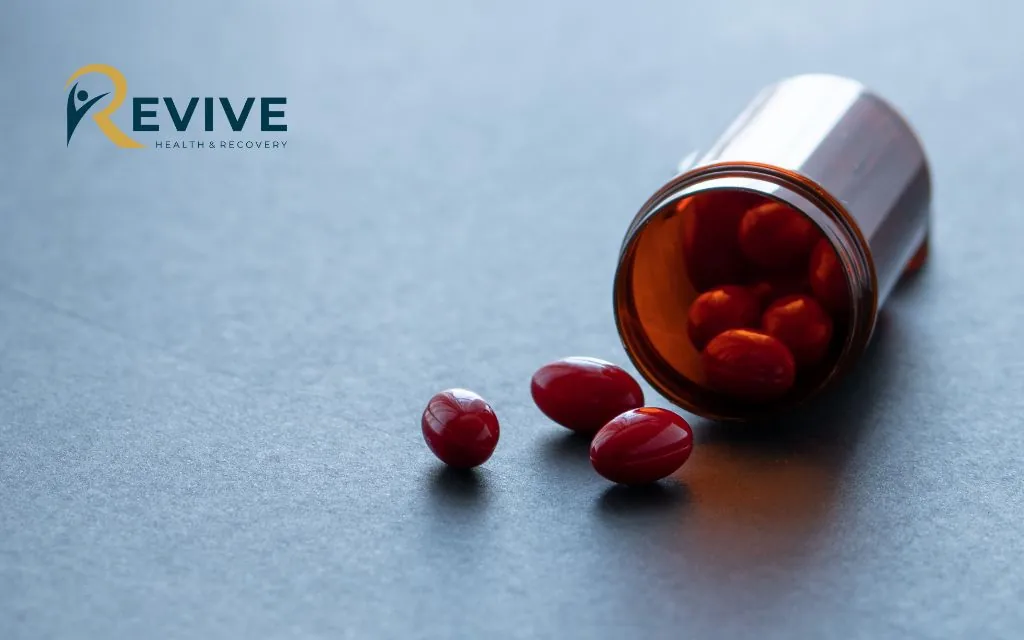
How Psychosis Develops from Substance Abuse
Substance abuse, especially with psychoactive substances, disrupts normal brain function and can lead to psychotic episodes. The altered brain chemistry from substances such as stimulants, hallucinogens, and depressants can result in temporary or lasting psychotic symptoms, including hallucinations and paranoia. These symptoms often subside with cessation of substance use, although some individuals may experience persistent effects.
Common Substances Linked to Psychosis
Certain substances are more frequently associated with substance induced psychosis. Stimulants such as methamphetamine and cocaine, hallucinogens like LSD, and depressants like alcohol can trigger severe psychotic reactions, especially with prolonged or excessive use. Individuals with a history of mental health issues may experience heightened vulnerability to psychotic symptoms from these substances.
Key Symptoms of Substance Induced Psychosis
Hallucinations and Delusions
Hallucinations (perceiving things that are not present) and delusions (strong beliefs with no basis in reality) are hallmark symptoms of substance induced psychosis. These experiences are often disturbing and can include visual or auditory hallucinations that leave individuals feeling confused and fearful.
Cognitive and Behavioral Changes
Substance induced psychosis also results in noticeable cognitive changes, such as impaired decision-making and memory issues, alongside behavioral changes. Individuals may exhibit aggression, paranoia, or severe mood swings, which impact their relationships and daily functioning.
Causes and Risk Factors for Substance Induced Mental illness
Role of Specific Drugs and Alcohol
Substance induced psychosis is heavily influenced by specific drugs that alter brain chemistry and disrupt mental stability. Each drug type affects the brain differently, and understanding these effects is critical for effective treatment.
Stimulants, Hallucinogens, and Depressants
Stimulants like cocaine can lead to high levels of dopamine, while hallucinogens such as LSD cause sensory distortions. Depressants, particularly alcohol, can contribute to psychosis through dependency and withdrawal symptoms. Each substance carries unique risks for psychosis based on its impact on the brain’s neurotransmitters.
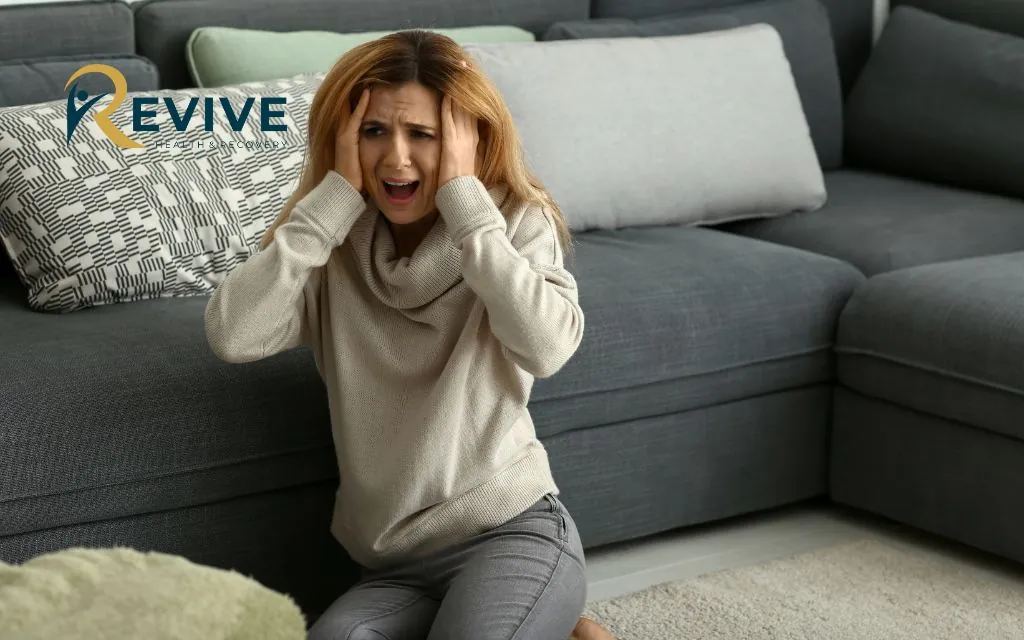
Genetic and Environmental Factors
Genetics and environment also play a role in susceptibility to substance induced psychosis. Individuals with a family history of psychosis or addiction may be at greater risk, as well as those exposed to environments with high substance availability or stressful life circumstances.
Co-Occurring Disorders and Dual Diagnosis Needs
Dual diagnosis is essential for those who suffer from both substance induced psychosis and other mental health disorders. Untreated mental health issues can exacerbate symptoms, making specialized dual diagnosis care crucial for lasting recovery.
Importance of Addressing Dual Diagnosis in Treatment
Addressing both the substance abuse and mental health aspects is crucial in treating substance induced psychosis effectively. Revive Health Recovery in Denver emphasizes dual diagnosis treatment, integrating comprehensive mental health care with substance abuse recovery programs.
Recognizing the Signs of Substance Induced Psychosis
Early Warning Signs to Watch For
Early signs of substance induced psychosis can include confusion, paranoia, and erratic behavior following substance use. These symptoms may escalate quickly, indicating an urgent need for medical intervention to prevent worsening.
Symptoms Differentiating It from Primary Psychosis
Symptoms of substance induced psychosis are similar to primary psychosis but are directly triggered by substance use. Unlike primary psychotic disorders, substance induced psychosis often improves with cessation of the triggering substance, though long-term effects are possible.

Comprehensive Treatment Options at Revive Health Recovery, Denver
Detoxification and Withdrawal Management
Revive Health Recovery provides medically supervised detoxification to ensure a safe and effective withdrawal process. Detox is essential for those with severe dependence to minimize risks and manage withdrawal symptoms effectively.
Dual Diagnosis Treatment for Lasting Recovery
Revive Health Recovery specializes in dual diagnosis treatment, addressing both substance induced psychosis and underlying mental health conditions. By tackling both areas, this approach supports lasting recovery and helps prevent relapse.
Aftercare and Long-Term Support Programs
Aftercare is a critical component of lasting recovery. Revive Health Recovery offers personalized long-term support programs, ensuring individuals have the resources and support needed to maintain mental health and sobriety post-treatment.
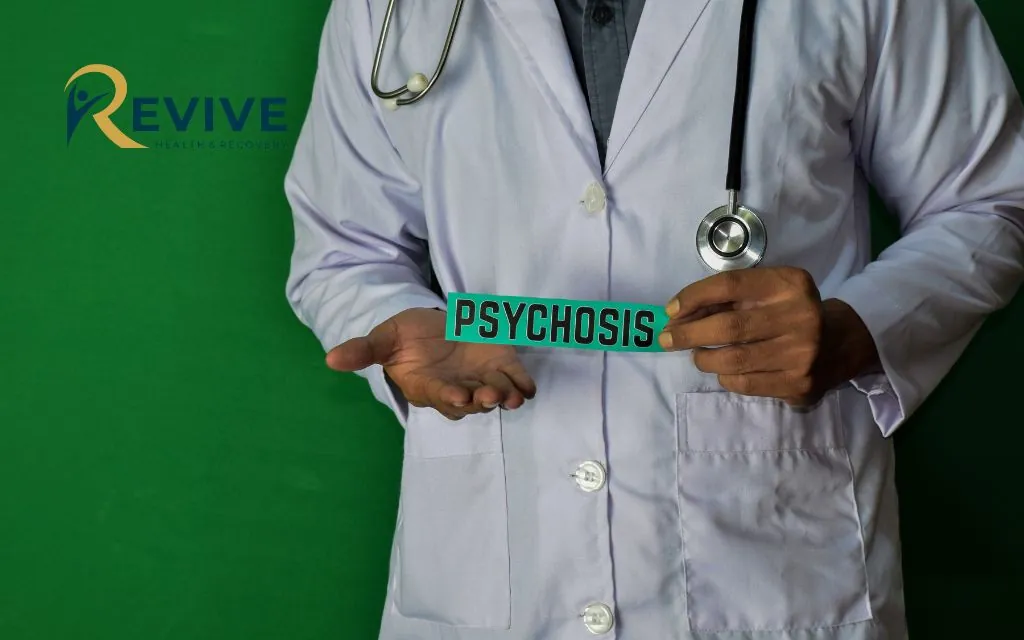
Impact of Substance Induced Psychosis on Life and Relationships
Personal and Social Consequences
The effects of substance induced psychosis extend beyond the individual, impacting family and social dynamics. Individuals may experience challenges in personal relationships, career instability, and social isolation.
Importance of Family and Community Support in Recovery
Support from family and the community plays a significant role in recovery. Engaging with loved ones and community resources can enhance motivation, provide emotional support, and reduce feelings of isolation.
Preventing Relapse After Recovery
Coping Strategies and Lifestyle Adjustments
Developing coping strategies and making lifestyle adjustments are essential for preventing relapse. Stress management, healthy routines, and avoiding triggers can help sustain mental health and sobriety.
Role of Support Networks in Relapse Prevention
Maintaining strong support networks, including family, friends, and support groups, is key to relapse prevention. These networks provide accountability and support, helping individuals stay on track in their recovery journey.
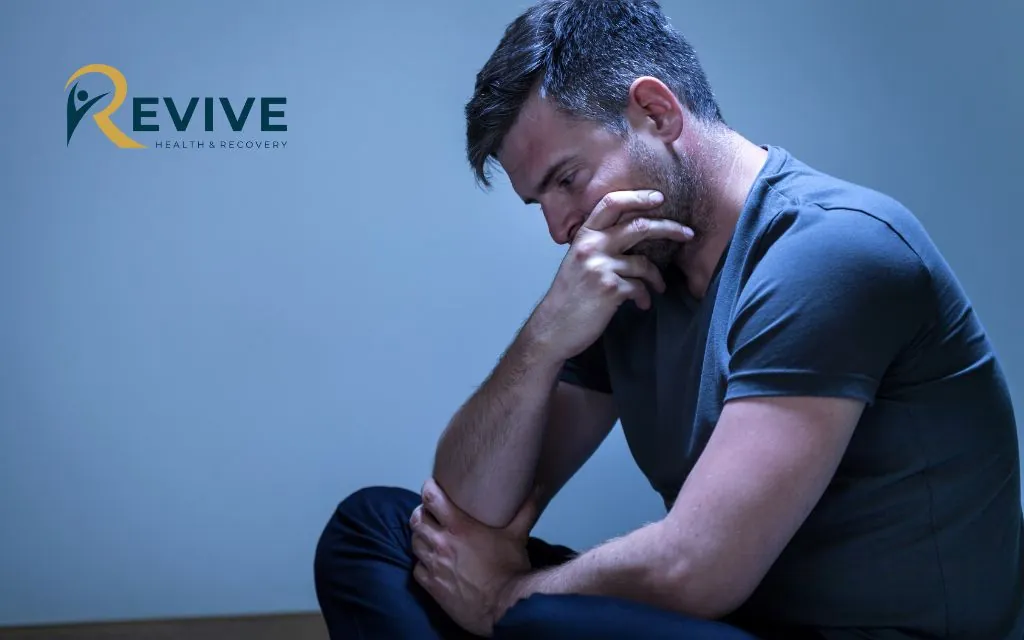
Why Choose Revive Health Recovery for Substance Induced Psychosis Treatment
Revive Health Recovery in Denver, Colorado, stands out as a premier treatment center for those facing substance induced psychosis. With a unique and compassionate approach tailored specifically to individuals affected by substance abuse-related mental health challenges, Revive Health Recovery offers an environment of healing that fosters stability and mental well-being.
Their highly specialized focus on dual diagnosis care, combined with evidence-based practices and holistic support, addresses both substance dependence and psychotic symptoms, ensuring that patients receive comprehensive care to sustain long-term recovery.
Each treatment plan at Revive Health Recovery is crafted to address the specific needs of the individual, recognizing that every case of substance induced psychosis is unique. With a team of experienced mental health professionals, medical staff, and counselors, Revive Health Recovery creates an integrated care environment that emphasizes both short-term stabilization and long-term success.
Through specialized therapies, detox programs, and an extensive aftercare plan, this facility is committed to helping individuals reclaim their lives from the effects of substance induced psychosis.

Unique Approach to Dual Diagnosis in Denver, Colorado
Revive Health Recovery’s approach to dual diagnosis treatment is a cornerstone of their success in treating substance induced psychosis. Many individuals with substance induced psychosis also have underlying mental health conditions such as depression, anxiety, or PTSD, which can complicate recovery if left unaddressed. Revive’s dual diagnosis approach ensures that both the addiction and mental health components are treated concurrently, which is vital for long-term success and relapse prevention.
In Denver, where substance abuse and mental health crises have risen significantly, Revive Health Recovery provides a safe, structured space to address the specific challenges posed by dual diagnosis cases.
By integrating mental health therapies with addiction treatment, the center empowers individuals to understand their condition more fully and gain the tools needed to manage both aspects of their diagnosis. This unique approach has been instrumental in helping many individuals achieve stability and improve their quality of life.
Personalized, Compassionate Care at Revive Health Recovery
Revive Health Recovery understands that the journey to mental wellness and sobriety is different for everyone. The center emphasizes a personalized approach to each client’s treatment plan, taking the time to understand the unique history, mental health needs, and life circumstances of each individual. This personal touch is paired with a commitment to compassionate care, ensuring that clients feel understood, valued, and supported throughout their recovery.
Compassion is a core value at Revive Health Recovery, and it’s evident in every aspect of their program. The staff takes a non-judgmental approach, offering empathy and support at every step.
From the initial assessment through detox, treatment, and aftercare planning, Revive Health Recovery’s team is dedicated to fostering an atmosphere that encourages open communication, trust, and healing. This compassionate care not only makes clients feel supported but also improves treatment outcomes, as individuals are more likely to fully engage with their treatment when they feel safe and understood.
Evidence-Based Practices and Holistic Support
At Revive Health Recovery, treatment is rooted in evidence-based practices that are proven effective for managing substance induced psychosis and addiction. The center employs a range of therapies backed by research, such as cognitive-behavioral therapy (CBT), dialectical behavior therapy (DBT), and trauma-informed care, all of which are effective in addressing both the psychological and behavioral components of substance induced psychosis. These therapies provide clients with practical tools to manage symptoms, prevent relapse, and rebuild a sense of self-control and stability.
In addition to traditional therapy, Revive Health Recovery embraces holistic support practices that promote overall wellness. The center offers mindfulness practices, yoga, nutrition counseling, and fitness activities, recognizing that physical health plays a vital role in mental well-being. This holistic approach not only aids in physical recovery but also empowers clients with healthy coping strategies that can help them maintain their mental health and sobriety post-treatment.

Proven Success in Treating Complex Cases
Revive Health Recovery has a proven track record of success in treating complex cases of substance induced psychosis. Many clients who come to Revive Health Recovery have previously struggled with maintaining long-term recovery due to the challenges of dual diagnosis. The center’s experience and expertise in managing these multifaceted cases have enabled numerous individuals to regain control of their lives and sustain their recovery.
The staff at Revive Health Recovery includes specialists in addiction psychiatry, psychosis, and dual diagnosis treatment, ensuring that each client receives targeted care tailored to their unique needs.
With a deep understanding of the challenges associated with both substance abuse and mental health disorders, Revive Health Recovery has developed an approach that not only treats immediate symptoms but also addresses the underlying factors contributing to the client’s condition.
This dedication to tackling the root causes of substance induced psychosis has allowed Revive Health Recovery to achieve high success rates and transform lives, making it a trusted name in Denver for comprehensive recovery care.
Conclusion
Substance induced psychosis is a complex condition that requires thorough understanding and targeted treatment to ensure effective recovery. Recognizing early signs, understanding risk factors, and accessing comprehensive treatment are crucial for overcoming this condition. At Revive Health Recovery in Denver, Colorado, individuals receive a holistic treatment approach, including dual diagnosis care, which is essential for addressing both mental health and substance abuse challenges. With the right support, those affected by substance induced psychosis can regain control over their lives and build a healthier future.
